10 Common Mistakes to Avoid When Buying Jewelry
Skip the mistakes and make smart, stylish jewelry choices that last with these simple tips.
JEWELRY
6/28/202510 min read


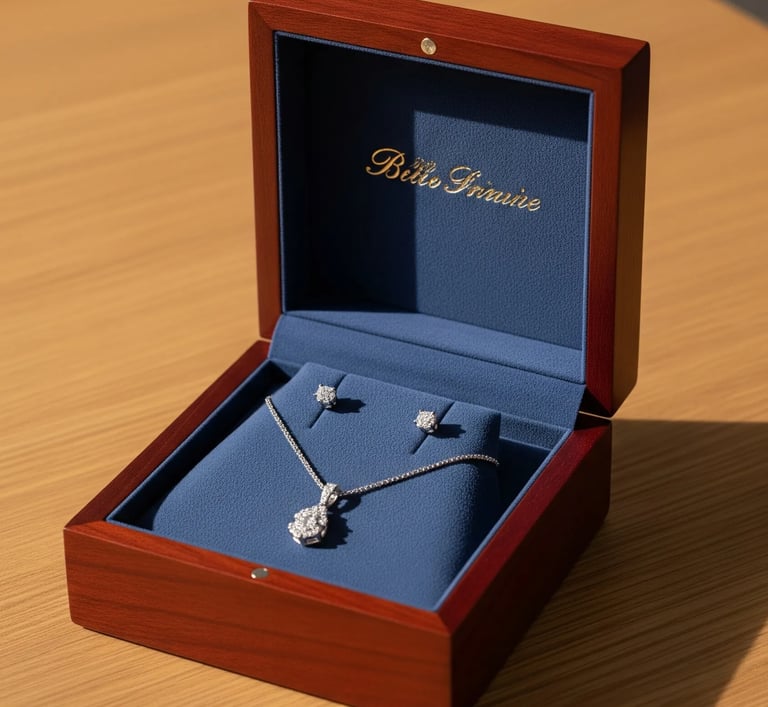



Buying jewelry can be exciting, whether it’s for yourself or someone special. From shiny rings to beautiful necklaces, there’s something for everyone. But with so many choices, it’s easy to make mistakes, especially if you're not sure what to look for. Many people focus only on how a piece looks, without checking quality, fitness, or even price. The truth is that a little extra care when shopping can save you from disappointment later.
If you're shopping online or in-store, it's important to know what to avoid. Some mistakes can lead to wasting money, getting poor-quality pieces, or buying something you won’t wear. The good news is these mistakes are easy to avoid once you know what they are. In this guide, we’ll go over 10 common mistakes people make when buying jewelry and how you can shop smarter, with more confidence. Let’s make sure your next jewelry purchase is one you’ll truly love.
Prioritizing Quantity Over Quality
It might seem like a good idea to buy lots of jewelry for a low price but more doesn’t always mean better. Many people end up with a collection of cheap pieces that break easily, lose their shine, or go out of style quickly. Instead of filling your jewelry box with low-quality items, it's smarter to invest in a few well-made pieces that last longer. High-quality jewelry may cost more upfront, but it often holds its value and can be worn for years. Choosing quality also means better materials, better comfort, and less risk of skin irritation.
When you focus on quality, you’re not just buying jewelry; you’re adding lasting value to your style. A single, well-crafted piece can elevate any outfit and become a go-to favorite. Good jewelry doesn't need to be flashy or expensive to be worth it; it just needs to be made with care. If you're unsure what to look for, here are a few helpful tips:
Check the materials (like real gold, silver, or high-grade stainless steel).
Look at the craftsmanship are the stones secure, and is the finish smooth?
Buy from trusted sellers or brands with good reviews.
Avoid impulse buys just because something is cheap or on sale.
Think long-term; choose pieces you’ll still love and wear in the future.
Overlooking How Easy It Is to Wear
When buying jewelry, many people focus only on how it looks and forget to think about how easy it is to wear. A piece might be beautiful, but if it's too heavy, hard to put on, or uncomfortable, you probably won’t wear it often. Jewelry should fit well into your daily life, if you’re dressing up or keeping it casual. If a necklace tangles easily or earrings hurt your ears after a few hours, they’ll end up sitting in your drawer. Comfort and ease of use matter just as much as appearance.
The best jewelry pieces are the ones you can wear without thinking twice. They match different outfits, feel light, and are simple to use. So, when shopping, always try to picture how the piece fits into your regular routine.
Here are a few tips to help you choose pieces that are easy to wear:
Check the weight; lighter pieces are more comfortable for long use.
Look for secure but simple clasps that are easy to open and close.
Choose versatile designs that go with both casual and dressy outfits.
Avoid sharp edges or bulky parts that might snag on clothing.
Try it on, if possible, to see how it feels before you buy.
Blindly Following Trends
In today’s fast-paced world, trends come and go quickly. Many people feel pressure to keep up with the latest styles, gadgets, or ideas just because everyone else is doing it. While following trends can be fun and sometimes helpful, blindly following them without thinking can cause problems. You might end up spending money on things you don’t need, don’t like, or that don’t match your style or values. Trends are made to grab attention, not always to fit your real needs, so it’s smart to stop and think before following them.
Instead of blindly following trends, it’s better to be thoughtful and true to yourself. You can enjoy trends that genuinely interest you, but don’t feel forced to join just because others are doing so. Take time to understand why a trend appeals to you and if it adds value to your life. This approach helps you make smarter decisions and maintain your individuality.
Here are some tips to avoid blindly following trends:
Ask yourself if the trend fits your personal style or goals.
Think about whether it benefits you or just looks good for a short time.
Set a budget and avoid spending impulsively on trendy items.
Remember that it’s okay to say no and stick with what feels right for you.
Neglecting Jewelry Care and Maintenance
Jewelry is more than just decoration; it can have special meaning, celebrate important moments, or be a valuable purchase. However, many people forget that jewelry needs regular care to stay beautiful and last a long time. Dirt, sweat, perfume, and even water can damage or dull your pieces over time. Neglecting maintenance can lead to tarnished metals, loose stones, or even broken clasps. Taking proper care of your jewelry not only keeps it looking new but also helps preserve its quality and value.
You don’t need to be an expert to take good care of your jewelry; simple steps can go a long way. Making jewelry care a regular habit can save you from costly repairs or replacements in the future. It's also a good way to make sure your favorite pieces are always ready to wear.
Here are a few easy tips to help maintain your jewelry:
Store jewelry in a clean, dry place, preferably in a soft pouch or lined box.
Avoid wearing jewelry while swimming, showering, or doing heavy chores.
Gently clean pieces with a soft cloth or mild soap and water.
Take off jewelry before applying lotion, perfume, or hair products.
Have valuable items checked by a professional jeweler once a year.
Buying the Wrong Size or Fit
When it comes to jewelry, buying the wrong size or fit is a mistake that can lead to frustration and wasted money. Rings that are too tight can hurt or be hard to wear, while loose ones might fall off and get lost. The same is true for bracelets, necklaces, and earrings; they need to fit well to look good and stay in place. Jewelry is meant to enhance your look and make you feel comfortable, so the right size and fit are just as important as style. Rushing through a purchase or guessing your size can often lead to regret.
To avoid buying jewelry that doesn’t fit, make sure to measure carefully and check the size before buying. Many people forget this, especially online, but it can save you a lot of hassle.
Here are some simple tips to help you choose jewelry that fits perfectly:
Use a ring sizer or visit a jeweler to find your correct ring size.
Measure your wrist and neck with a soft tape measure for bracelets and necklaces.
Check the product description for chain lengths, pendant sizes, and clasp types.
Read customer reviews for notes on fitness or comfort.
Choose adjustable designs if you’re unsure about sizing or prefer flexibility.
Not Setting a Realistic Budget
One of the biggest mistakes people make when buying jewelry is not setting a realistic budget. It's easy to get carried away by shiny displays, luxury brands, or limited-time deals. If you don’t set a clear budget, you might spend too much or buy something that isn’t worth it. Jewelry prices vary a lot, so it’s important to know how much you want and can afford to spend before shopping. A well-planned budget helps you focus on pieces that match both your style and your wallet.
Being smart about budgeting doesn’t mean you have to sacrifice quality or beauty. It just means being prepared and intentional with your choices. Before buying, do a little research to understand the price range of the type of jewelry you want. Keep in mind that sometimes you're also paying for the brand name or design, not just the materials.
Here are some tips to help you stick to a realistic jewelry budget:
Decide on a spending limit before you start shopping.
Compare prices from different stores or websites.
Focus on quality over quantity; one good piece is better than several cheap ones.
Ask about warranties, return policies, or repair options.
Save up for more expensive items instead of buying impulsively.
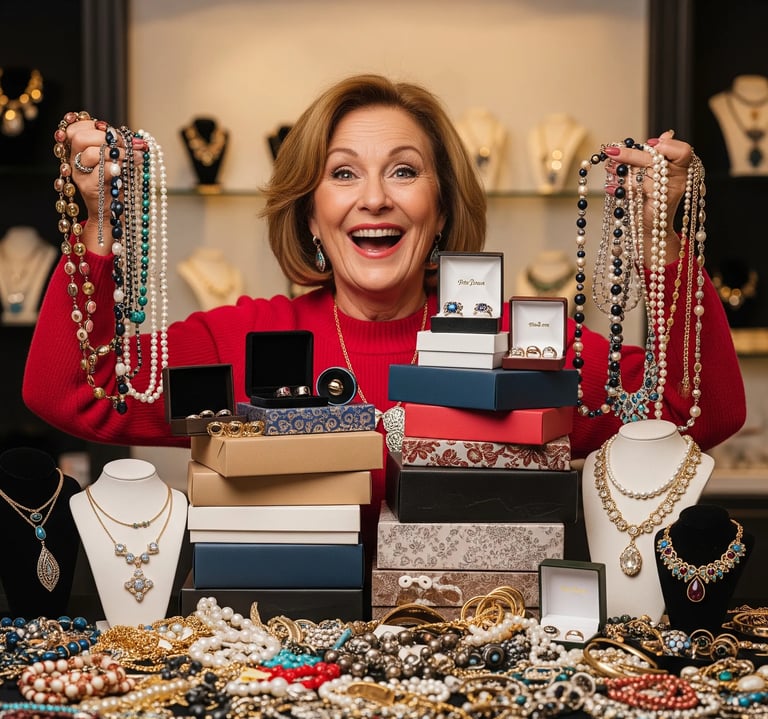

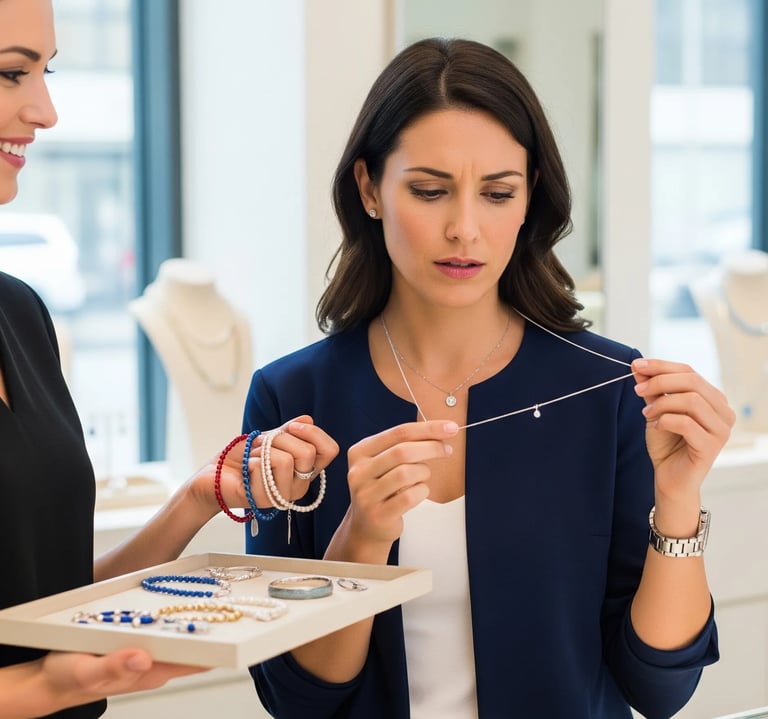





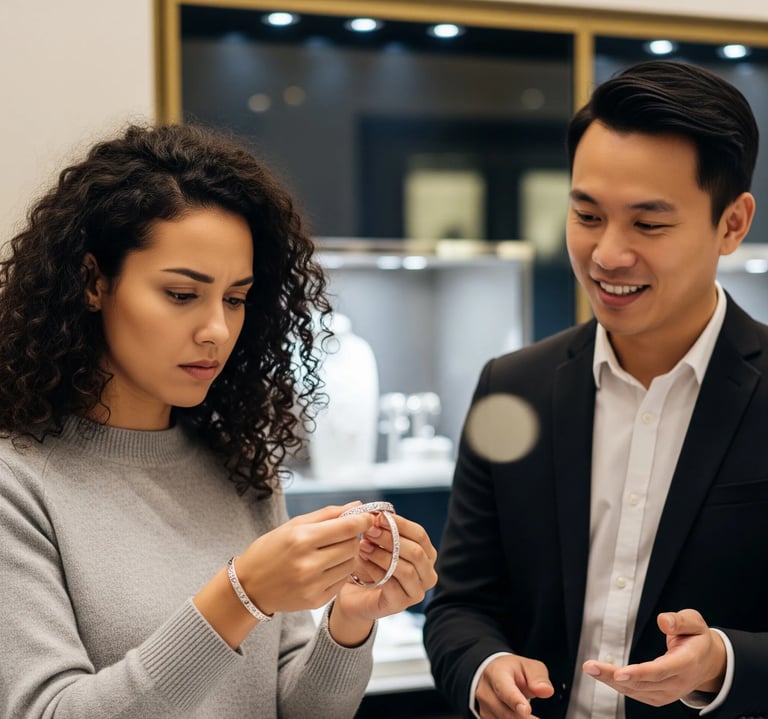

Overlooking the Seller’s Reputation
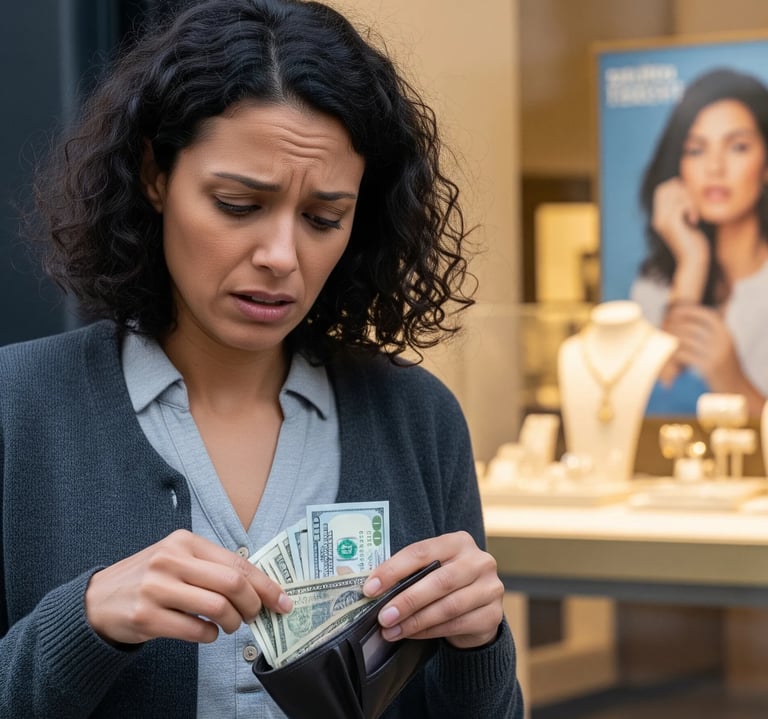

When buying jewelry, many people only look at the product and price but forget to check the seller’s reputation. This can be a costly mistake. A seller with bad reviews or unclear rules might sell fake or low-quality jewelry and offer poor service. Trusted sellers usually sell real jewelry at fair prices and have clear return and warranty policies. If you're shopping online or in-store, it's important to know who you’re buying from to avoid scams or disappointments.
Researching the seller doesn't take much time, but it can save you from a lot of trouble. Look for signs of credibility, like customer reviews, ratings, and years in business. A reliable seller will also be transparent about product details and provide proper certificates for valuable items.
Here are a few easy tips to help you choose a trustworthy jewelry seller:
Read customer reviews on multiple platforms.
Check if the seller has clear contact information and return policies.
Look for jewelry certifications or authenticity guarantees.
Avoid deals that seem too good to be true; they often are.
Ask questions and see how quickly and clearly the seller responds.


Failing to Ask About Return and Warranty Policies
When buying jewelry, many shoppers forget to ask about return and warranty policies and that can lead to problems later. You might find out the piece doesn't fit, looks different in person, or has a defect. Without a clear return policy, you could be stuck with something you don’t want or can’t use. The same applies to warranties; if a stone falls out or a clasp breaks soon after buying, it’s important to know if the seller will fix or replace it. Asking the right questions before buying can protect your investment and give you peace of mind.
Understanding return and warranty terms can help you shop smarter and avoid regrets. Policies vary between sellers, especially online and in different countries, so never assume they’re all the same. Look for stores that are upfront with their policies and offer customer-friendly options.
Here are some helpful tips to guide you:
Always ask if the item is returnable or exchangeable and within what time frame.
Check if there are restocking fees or conditions for returns.
Ask if the jewelry comes with a warranty and what it covers.
Keep your receipt, warranty card, and any paperwork.
Choose sellers with clear, written policies available on their website or store.
Not Verifying the Authenticity of Materials
When buying jewelry, it’s very important to make sure the materials are real. Jewelry might look nice, but without checking, you could get fake or low-quality metals and stones. Some sellers use tricky words like “gold-plated” or “diamond-like” that sound valuable but are not the same as real gold or diamonds. This can be disappointing, especially if you paid a high price thinking you were getting the real thing. Always make sure the jewelry you're buying is made from what the seller claims.
Taking time to check the authenticity protects you from scams and helps you get your money’s worth. Reputable sellers will provide certificates or documentation for valuable materials like gold, silver, and gemstones. If you're unsure, you can also take the piece to a professional for a second opinion.
Here are a few simple tips to help verify authenticity before making a purchase:
Ask for a certificate of authenticity, especially for diamonds or precious metals.
Learn the common stamps and markings (e.g., 14K for gold, 925 for silver).
Buy from sellers who are transparent about the materials and provide proof.
Be cautious of deals that seem too cheap for the claimed quality.
Consider getting an appraisal from a certified jeweler for expensive items.
Skipping Professional Advice or Certification
When buying fine jewelry, skipping professional advice or certification can lead to costly mistakes. Many people believe what sellers say without asking experts, especially for gemstones, diamonds, or expensive metals. But things can look different than they really are. Without a certified expert, you might not know the true quality or value of what you buy. Certified jewelers or gem experts can help you understand things like how clear or well-cut a gem is. Taking the extra step to get professional input is a smart way to protect your investment.
Certification is especially important when purchasing expensive or rare items. A trusted certificate adds credibility to your purchase and can even increase its resale value. It also ensures you're not overpaying for something that’s worth less than claimed. If you’re unsure, don’t be afraid to ask questions or request documentation.
Here are some tips to help you avoid this common mistake:
Buy from sellers who provide official certifications (e.g., GIA for diamonds).
Ask for a professional appraisal if you're making a high-value purchase.
Consult a jeweler or gemologist if you're unsure about quality or pricing.
Don’t rely only on verbal promises; get everything in writing.
Research the meaning and reputation of any certificate offered.
Buying jewelry should be a fun and rewarding experience, not a stressful one. By avoiding these common mistakes, you can make smarter choices and find pieces you’ll truly love and enjoy for years. Whether you’re shopping for yourself or someone special, remember to take your time, ask the right questions, and trust your instincts. The best jewelry isn’t always the most expensive; it’s the one that fits your style, needs, and budget. Have you ever made one of these mistakes or learned a jewelry tip the hard way? Share your thoughts or experiences in the comments.
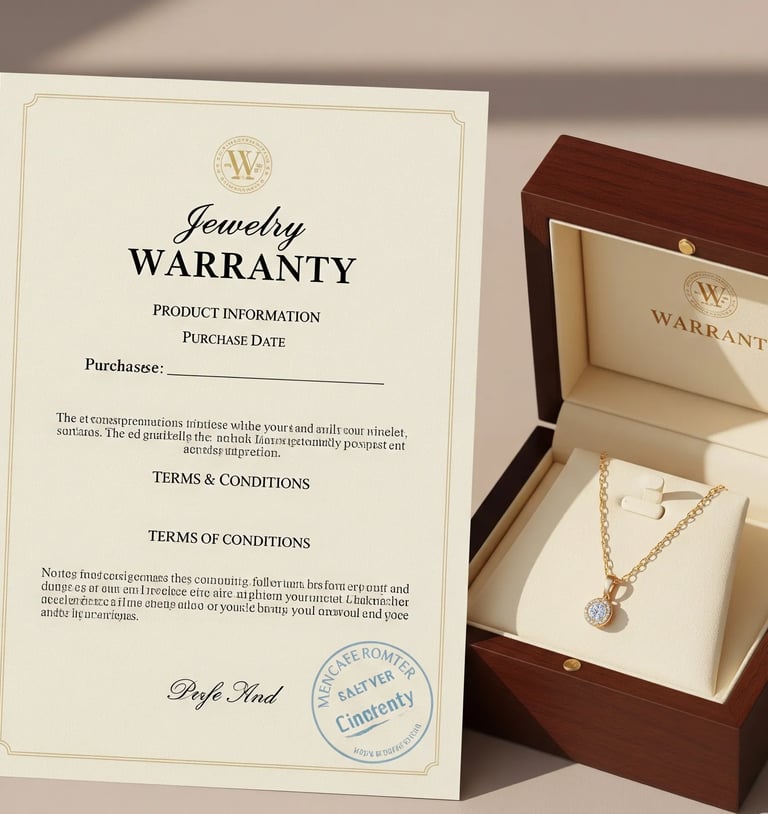





Get in touch
Address:
Belmont Village
Cebu Philippines
6046
Contacts:
+63 (032) 2630828
info@filipinophotoeditor.com
